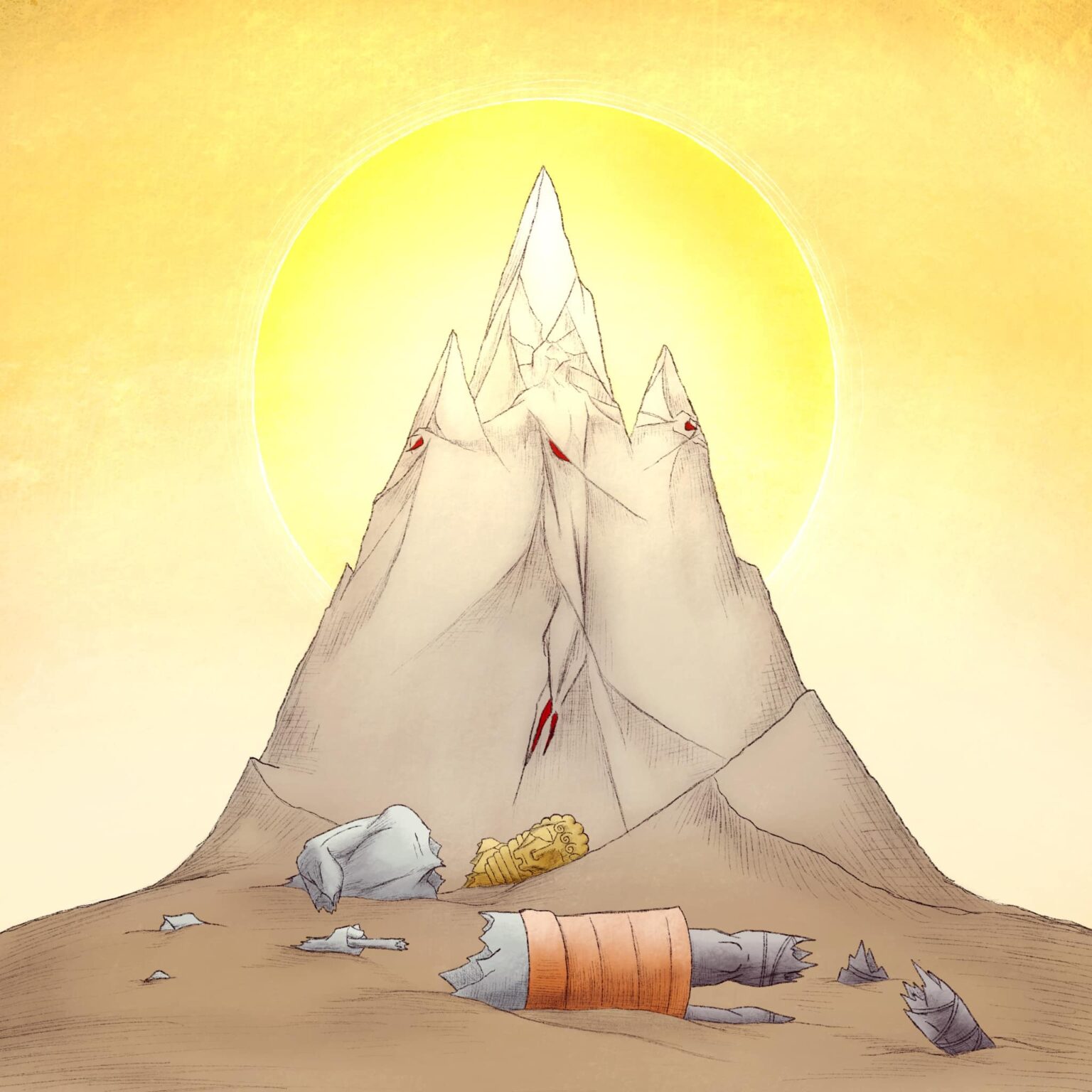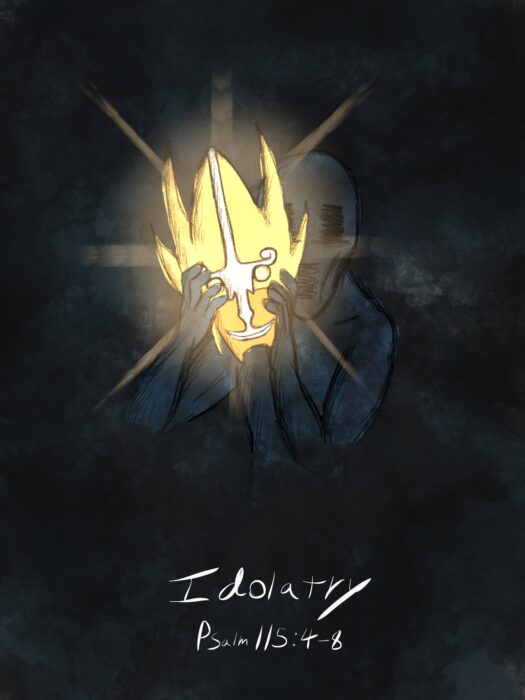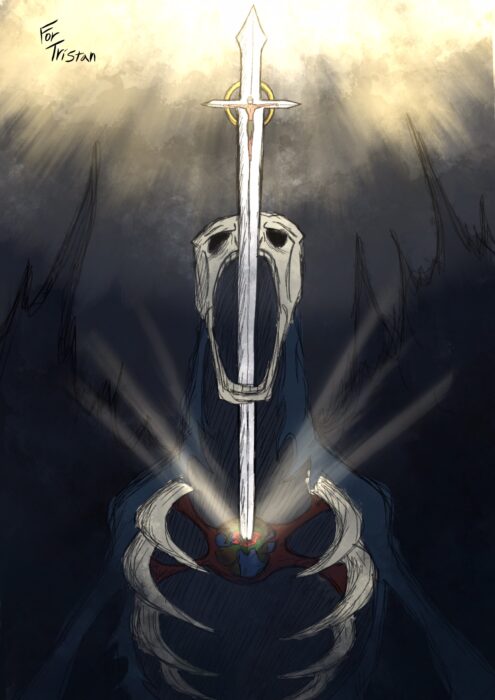
Daniel 2:44, “The God of heaven will set up a kingdom that shall never be destroyed, nor shall the kingdom be left to another people. It shall break in pieces all these kingdoms and bring them to an end, and it shall stand forever…”
I hadn’t considered before the implications for temporal perspective found in this dream. The different portions of the statue are temporally subsequent kingdoms, and yet they are all viewed in one glance by the dreamer. They are a single statue, taken in at a single moment by a single act of sight, and yet they represent hundreds of years of history. This is likely something like God’s own perspective on time, able to take in all places and times at a single glance, and here this trans-temporal sight is granted to the dreamer.
Also, notice that the sequential happenings of history are presented as a coherent whole. The fact that the kingdoms are presented as a statue could point to many things, but at least one is the fact that history is designed, is ordered, is structured. Each kingdom and individual playing their part in the overall pattern. Now, there is—of course—an intended contrast between the statue and the mountain, one is not made by human hands (the mountain), the other—by implication—is (the statue). However, I think the concept of an ordered and designed historical unfolding still stands and is almost a prerequisite for any vision of this kind.
Also, consider how the mountain is said to break in pieces “all these kingdoms.” Again, there is a sort of trans-temporal quality here. The mountain does not only destroy the feet, it does not only destroy the final kingdom, it breaks in pieces “all these kingdoms.” Just as destroying a real statue would shatter equally the feet and legs and head etc., so too the divine stone’s destruction of the statue is complete, reaching back—as it were—through time to destroy all the kingdoms of human pride. The victory of the Christ is total, it is transcendent, it is omni-temporal, it reaches across all ages and exposes all godless kingdoms as false, as shadows, as vain graspings at power by thieves and imposters.
Lastly, note that in the pattern of the vision, the final kingdom—the kingdom of God and of His Christ—is the “lowliest.” It comes even after the feet of iron and clay and it is, in fact, a stone, as low as the earth itself. And yet this most lowly of materials shatters even the head of gold and is established as a world-spanning mountain….a mountain upon which the gods were seated in Ancient Near Eastern thought and within whose veins of ore reside all the other precious metals in their purest forms. What a fitting image for the Christ, who would be the lowly stone rejected by the builders (Psalm 118:22), crucified as a convicted criminal, hung up in shame on the cross…..and who—in this lowliest of stations—would shatter the lofty pride and reason and transient glory of humanity. God on the cross, the Lord as the stone rejected, this is the one who demolishes the kingdoms of rebellious humanity, and who—in His resurrection—establishes the Kingdom of God and of His Christ in which the saints rule as sons and shine as stars.



